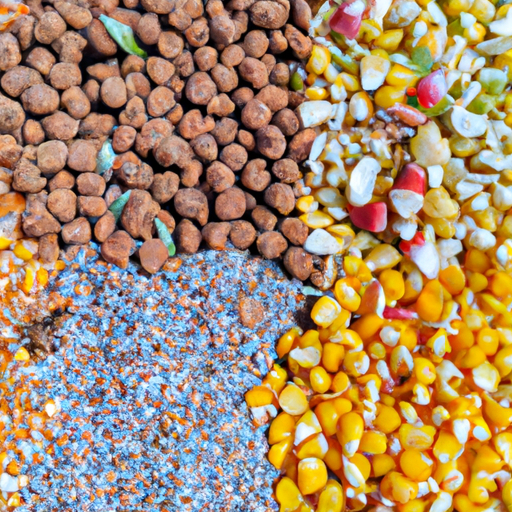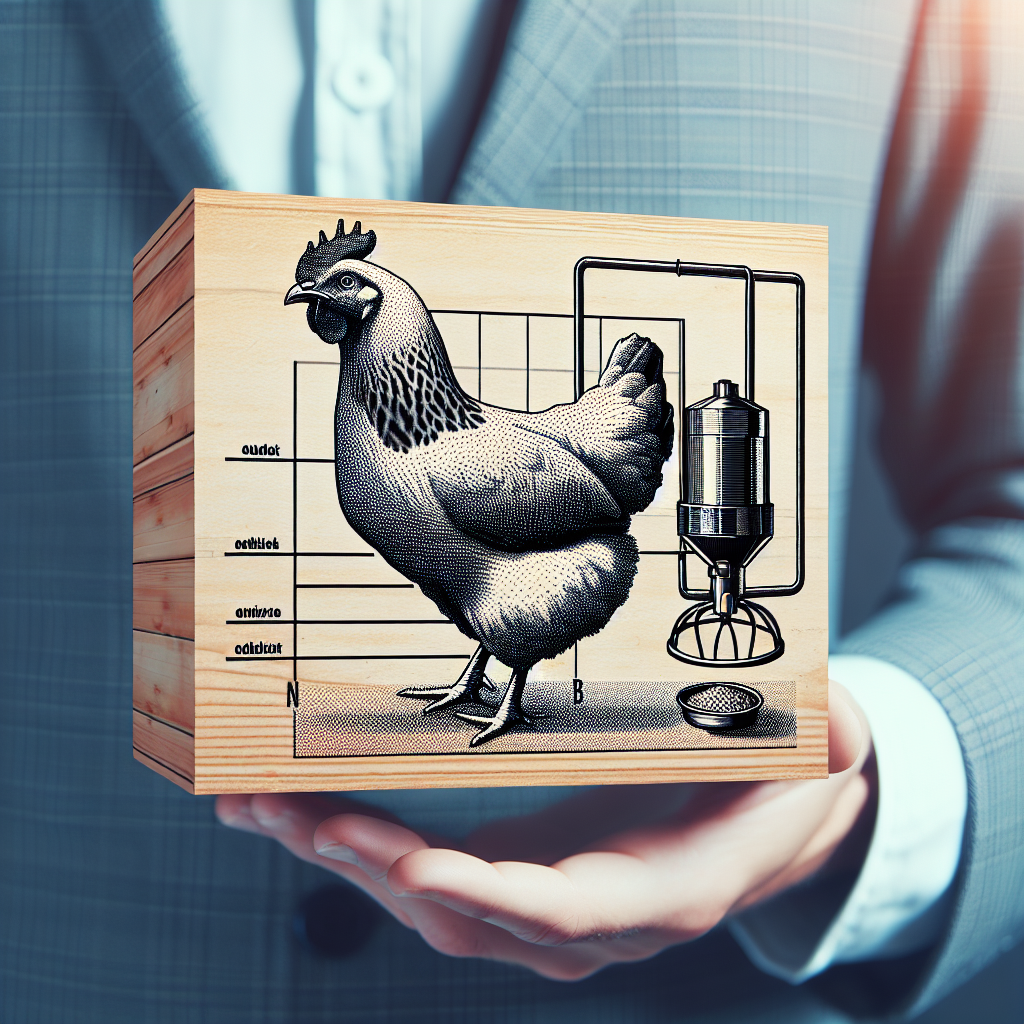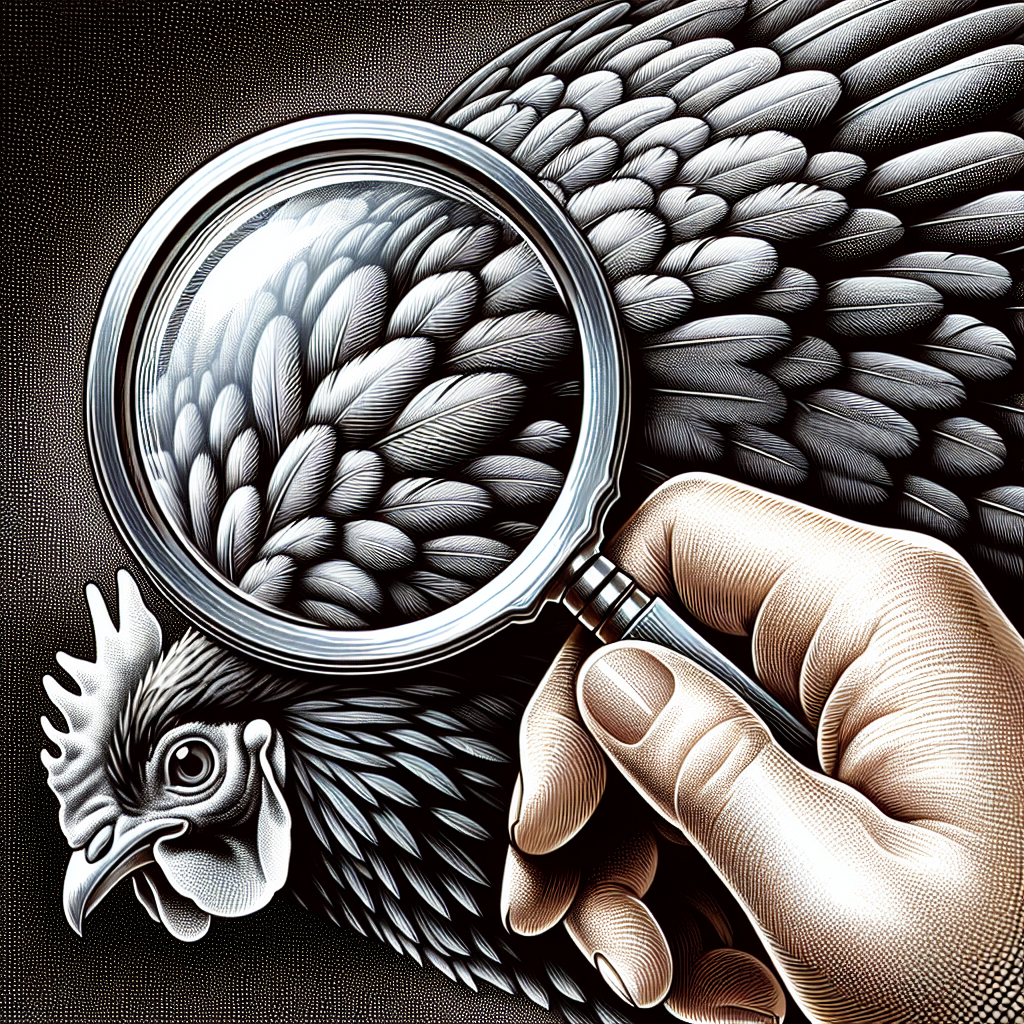If you’re a poultry farmer or someone who simply loves taking care of a flock, you might find yourself pondering the question: “How do I ensure uniform growth and health in a flock?” Well, the key lies in providing the right nutrition, creating a comfortable environment, and implementing a good management system. By understanding the specific needs of your feathered friends and taking necessary steps to meet those needs, you can ensure that your flock thrives together, growing and staying healthy as a unit. So, let’s explore some practical tips and strategies to help you achieve uniform growth and health in your flock!
Understanding the Needs of Your Flock
Determining the Ideal Flock Size
When it comes to raising a flock of poultry, determining the ideal flock size is crucial. You want to ensure that your flock is large enough to satisfy your needs but also small enough to manage effectively. The size of your flock will depend on various factors such as the space available, your level of expertise, and the resources you have at your disposal. By carefully evaluating these factors, you can determine a flock size that is both manageable and sustainable for your specific circumstances.
Managing Age and Gender Composition
The age and gender composition of your flock is another important aspect to consider. Depending on your goals, you may want to introduce birds of different ages and genders to ensure the overall health and productivity of your flock. For example, introducing younger birds can help maintain a consistent supply of eggs or meat, while older birds can serve as experienced mentors to younger ones. By carefully managing the age and gender composition of your flock, you can create a harmonious and balanced environment that promotes overall flock health.
Providing Appropriate Housing and Space
Providing appropriate housing and space for your flock is vital to their overall well-being. Poultry housing should be designed to protect your birds from the elements, predators, and diseases. It should also provide adequate space for the birds to move around freely and engage in natural behaviors. When determining the housing and space requirements for your flock, consider factors such as the breed of your birds, their size, and their specific needs. Adequate ventilation, nesting areas, perches, and access to outdoor space are all important components to consider when providing suitable housing for your flock.
Maintaining a Proper Diet
Balancing Nutritional Requirements
Maintaining a proper diet is essential for ensuring the health and growth of your flock. Poultry require a well-balanced diet that includes the right amounts of protein, carbohydrates, fats, vitamins, and minerals. The specific nutritional requirements will vary depending on the age, breed, and purpose of your birds (e.g., egg-laying or meat production). Consulting with a poultry nutritionist or veterinarian can help you develop a feed ration that meets the specific needs of your flock.
Determining Feeding Frequency
In addition to providing a balanced diet, determining the feeding frequency is also crucial. Poultry should have access to feed at regular intervals throughout the day. The frequency of feeding will depend on factors such as the age of your birds and their specific nutritional requirements. Young chicks, for example, may require more frequent feeding compared to adult birds. Offering feed at consistent intervals ensures that your flock receives the nutrients they need to maintain optimal health and growth.
Ensuring Access to Fresh Water
Water is often overlooked but is a critical component of a healthy diet for poultry. Birds require access to clean, fresh water at all times. Water helps with digestion, regulates body temperature, and assists in overall metabolic functions. Make sure to regularly check and clean waterers to prevent the build-up of bacteria or algae. Additionally, during extreme weather conditions, it is important to monitor water consumption and provide additional sources of water if needed.
Preventing and Managing Diseases
Implementing Biosecurity Measures
Preventing the outbreak of diseases is crucial for maintaining the health of your flock. Implementing biosecurity measures can significantly reduce the risk of disease transmission within your flock. This includes practicing strict hygiene protocols, limiting access to your flock, and regularly disinfecting equipment and facilities. Additionally, quarantine protocols should be followed when introducing new birds to ensure that any potential diseases are properly detected and managed before introducing them to the flock.
Routine Health Checks and Monitoring
Regular health checks and monitoring are essential for early detection of any potential health issues within your flock. This includes observing behavior, inspecting the overall condition of the birds, and checking for any signs of illness or abnormalities. Having a close relationship with a poultry veterinarian can prove invaluable in diagnosing and treating any potential health problems promptly. Scheduled health checks allow you to detect and address any issues early on, preventing the spread of diseases and promoting overall flock health.
Administering Vaccinations
Vaccinations are an essential part of disease prevention in poultry. Consult with your veterinarian to determine which vaccinations are necessary for the specific diseases prevalent in your area. Vaccinations can be administered to both chicks and adult birds, and a proper vaccination schedule should be followed for optimal protection. By staying up to date with vaccinations, you can significantly reduce the risk of disease outbreaks and promote a healthier flock overall.
Promoting Good Hygiene Practices
Maintaining Clean Living Areas
Maintaining clean living areas for your flock is essential for preventing the spread of diseases and ensuring optimal hygiene. Regularly clean out bedding, droppings, and debris from the coop or housing area. This helps reduce the build-up of harmful bacteria and pests that can pose a threat to your flock’s health. Providing clean and comfortable bedding is also important for the overall well-being of your birds.
Regular Cleaning and Disinfection Procedures
Regularly cleaning and disinfecting your poultry housing and equipment is crucial to minimize disease risks and maintain good hygiene practices. Use appropriate cleaning agents and disinfectants to clean all surfaces, including walls, floors, perches, and nesting areas. Make sure to follow the instructions provided by the manufacturer and allow sufficient drying time before reintroducing your birds to the cleaned environment.
Proper Waste Management
Proper waste management is vital for maintaining a clean and healthy environment for your flock. Regularly remove and dispose of manure, used bedding, and other waste materials in a responsible manner. Consider composting as a sustainable waste management solution, as it can help create valuable fertilizer for your garden while reducing waste. By implementing proper waste management practices, you can minimize the risk of disease transmission and promote a cleaner and more hygienic environment for your flock.
Facilitating Adequate Exercise and Activity
Allowing Sufficient Space for Movement
Poultry require sufficient space to move around and engage in natural behaviors. Lack of space can lead to stress, inactivity, and even aggressive behavior within the flock. Providing ample space both inside the coop and in outdoor areas allows your birds to exercise, explore, and interact with their surroundings. Consider the size and breed of your birds when determining the appropriate space requirements to ensure optimal comfort and well-being.
Providing Enrichment Activities
Enrichment activities are essential for keeping your flock mentally stimulated and engaged. This can include providing objects for pecking, perches for climbing, and access to natural materials such as grass, leaves, or branches. Regularly rotate and introduce new enrichment items to prevent boredom and promote healthy behaviors. Enrichment activities not only enhance the overall well-being of your birds but also help minimize the occurrence of destructive or aggressive behaviors.
Encouraging Natural Behaviors
Poultry have natural behaviors such as scratching, dust bathing, and foraging. Encouraging these natural behaviors can contribute to the overall health and well-being of your flock. Provide appropriate areas for dust bathing, include foraging opportunities by scattering feed or hiding treats, and allow access to outdoor spaces where birds can engage in natural behaviors. By facilitating natural behaviors, you create a stimulating and fulfilling environment for your flock.
Managing Social Dynamics within the Flock
Preventing Overcrowding and Aggression
Maintaining an appropriate ratio of birds to space is crucial for a harmonious flock dynamic. Overcrowding can lead to stress, increased aggression, and potential health issues. Ensure that your flock has sufficient space to move around comfortably and establish their hierarchy without overcrowding. Monitor the behavior of your birds closely and separate any aggressive individuals to prevent harm to other flock members.
Introducing New Birds Properly
When introducing new birds to the flock, it is essential to do so gradually and with care. Quarantine new birds for a period of time to observe their health and behavior before introductions. Gradual introductions allow the birds to establish a pecking order and minimize the likelihood of aggression or stress. Monitor the interactions between new and existing flock members and intervene if necessary to ensure a smooth integration process.
Monitoring Social Interactions
Regularly monitoring social interactions within your flock allows you to identify and address any potential issues promptly. Pay attention to aggressive behaviors, bullying, or signs of distress. Intervene if necessary by separating and addressing the underlying causes of conflicts. Promoting a positive and harmonious social environment within your flock contributes to the overall well-being and productivity of your birds.
Implementing a Regular Maintenance Schedule
Cleaning and Inspecting Housing Structures
Regularly cleaning and inspecting your poultry housing structures is essential for maintaining a safe and functional environment for your flock. Check for any signs of wear and tear, such as damaged walls, floors, or roofing, and promptly repair or replace any compromised areas. Regularly clean out debris, cobwebs, and pests to prevent potential health risks. By implementing a regular maintenance schedule, you can ensure that your flock’s housing remains in optimal condition.
Checking and Repairing Fencing
Ensuring the security of your poultry enclosure is crucial for protecting your flock from predators and preventing escape. Regularly inspect fencing for any damage, such as holes or loose wires, and promptly repair or replace any compromised areas. Additionally, consider using predator-proof measures such as burying fencing underground or installing electric fencing to further enhance the security of your poultry area.
Maintaining Equipment and Tools
Maintaining your poultry equipment and tools is important for their longevity and functionality. Regularly clean and inspect items such as feeders, waterers, and egg collection systems to ensure they are free from debris or damage. Replace any worn-out or damaged equipment to ensure the safety and efficiency of your flock management practices. Implementing a regular maintenance schedule for your equipment and tools helps prevent unexpected failures and ensures the smooth operation of your poultry management routine.
Ensuring Proper Ventilation and Air Quality
Providing Adequate Ventilation Systems
Proper ventilation is crucial for maintaining optimal air quality within the poultry housing. Good ventilation helps remove excess moisture, ammonia, and other gases that can negatively impact the health of your flock. Ensure that your poultry housing has adequate ventilation systems, such as windows, vents, or fans, to promote the circulation of fresh air. Regularly check and clean ventilation openings to prevent obstructions and ensure proper air exchange.
Reducing Excessive Moisture and Humidity
Excessive moisture and humidity in the poultry housing can lead to respiratory issues, poor feather quality, and increased disease susceptibility. Take measures to reduce moisture levels by implementing proper drainage systems, using absorbent bedding materials, and ensuring good air circulation. Regularly monitor humidity levels and address any issues promptly to maintain a comfortable and healthy environment for your flock.
Monitoring Ammonia Levels
Ammonia, a byproduct of poultry waste, can build up in the poultry housing and negatively impact the respiratory health of your flock. Regularly monitor ammonia levels using appropriate testing kits to ensure they stay within safe limits. Proper ventilation and regular cleaning practices can help minimize the build-up of ammonia. If elevated ammonia levels are detected, take immediate action to address the issue and improve air quality within the housing.
Managing Temperature and Lighting Conditions
Maintaining Optimal Temperatures
Maintaining optimal temperature conditions is crucial for the health and well-being of your flock. Poultry are sensitive to temperature fluctuations and can be susceptible to heat stress or cold-related issues. Provide appropriate heating or cooling systems within the housing, depending on the climate and season. Regularly monitor temperature levels and adjust accordingly to ensure the comfort and productivity of your flock.
Implementing Lighting Programs
Lighting plays a significant role in regulating the physiological processes and reproductive cycles of poultry. Implementing lighting programs can help simulate natural daylight patterns, optimize egg production, and promote overall flock health. Consider using timers or light control systems to establish consistent lighting schedules tailored to the specific needs of your flock. Monitor lighting conditions regularly to ensure they remain effective in supporting the natural behaviors and reproductive cycles of your birds.
Using Artificial Heat Sources
During colder months or in regions with colder climates, providing artificial heat sources can be necessary to protect your flock from extreme temperatures. Make sure the heat source is safe, reliable, and properly installed. Monitor temperature levels closely and adjust the heat source as needed to maintain a comfortable and stable temperature within the poultry housing. Remember to provide adequate ventilation to prevent the build-up of gases associated with heating equipment.
Seeking Professional Advice and Support
Consulting with a Veterinarian
Consulting with a veterinarian who specializes in poultry health is essential for maintaining the optimal growth and health of your flock. They can provide expert advice on nutrition, disease prevention and treatment, and overall flock management. Regular check-ups and consultations with a veterinarian allow you to stay proactive in managing the health of your flock and address any concerns promptly.
Joining Poultry Associations and Forums
Joining poultry associations and forums provides an invaluable opportunity to connect with other poultry enthusiasts and experts in the field. These communities offer a wealth of knowledge, advice, and support for all aspects of poultry management. Participating in discussions, attending workshops, and sharing experiences with fellow poultry keepers can help you stay updated on the latest practices and techniques for ensuring the uniform growth and health of your flock.
Attending Workshops and Training
Attending workshops and training sessions focused on poultry management can enhance your knowledge and skills in maintaining a healthy flock. These educational opportunities provide insights into various aspects of poultry care, including nutrition, disease prevention, and flock management techniques. Participating in hands-on training and workshops allows you to learn practical skills and gain confidence in taking care of your flock more effectively.
In conclusion, ensuring uniform growth and health in your flock requires a comprehensive approach that addresses their specific needs. By understanding the ideal flock size, managing age and gender composition, providing appropriate housing and space, maintaining a proper diet, preventing and managing diseases, promoting good hygiene practices, facilitating adequate exercise and activity, managing social dynamics, implementing a regular maintenance schedule, ensuring proper ventilation and air quality, managing temperature and lighting conditions, and seeking professional advice and support when needed, you can create a thriving and healthy flock that will bring you joy and success in your poultry endeavors.




